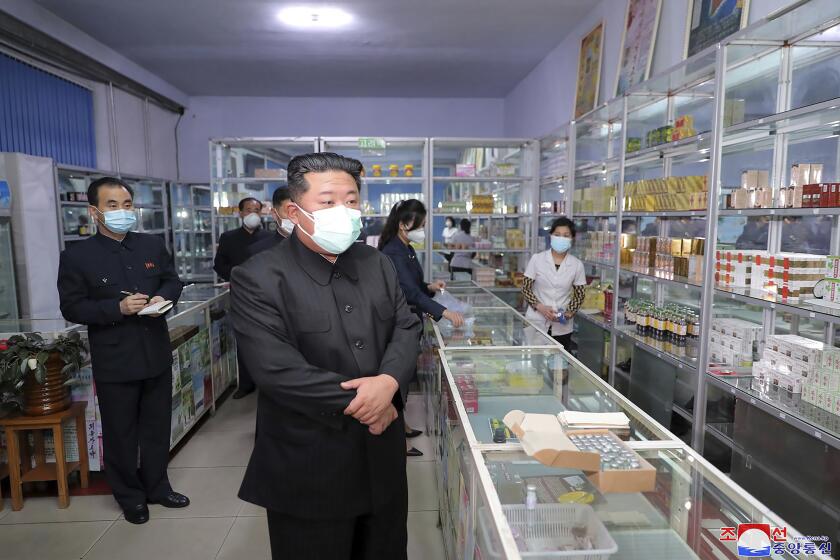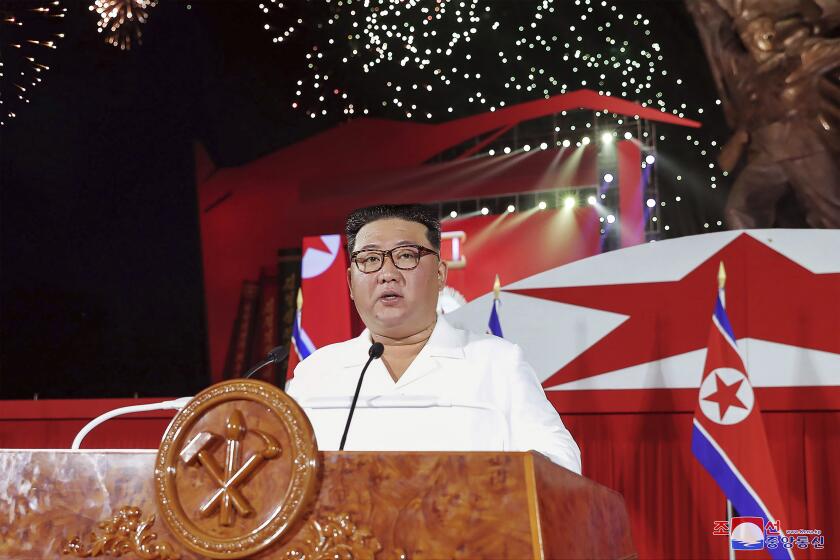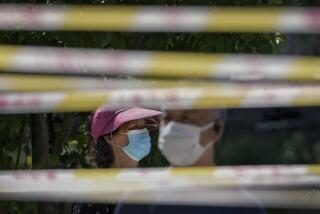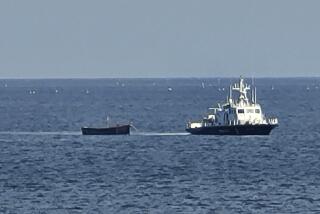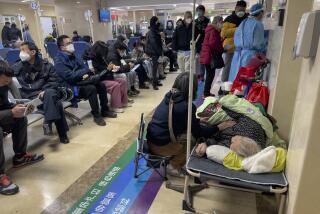After declaring victory over the coronavirus, North Korea finds new suspected cases
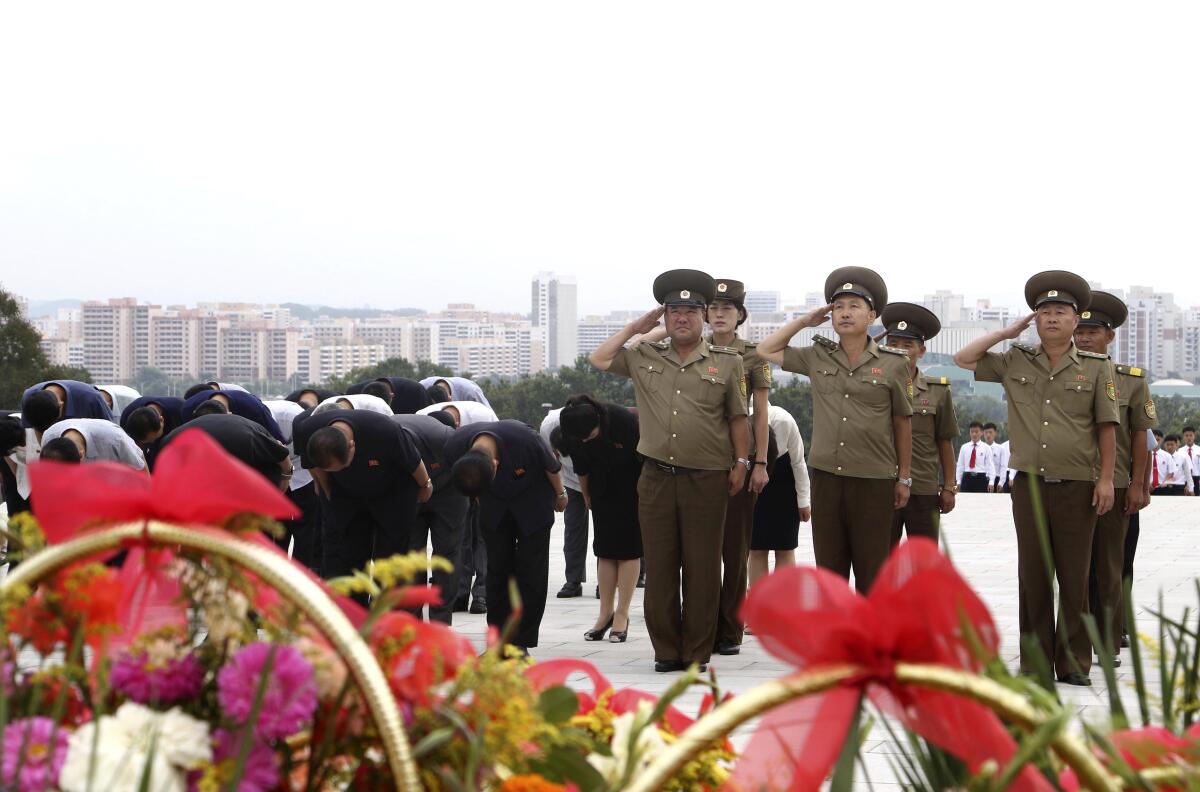
- Share via
SEOUL — North Korea on Thursday said it found four new cases of fever in its border region with China that may have been caused by the coronavirus, two weeks after leader Kim Jong Un declared a widely questioned victory over COVID-19.
North Korea’s state-run Korean Central News Agency, or KCNA, said health workers were conducting genetic tests on the samples taken from four people in Ryanggang province to confirm whether the fevers they exhibited were caused by the “malignant epidemic.” North Korea often uses that term, along with “malignant virus,” to describe COVID-19 and the coronavirus.
Authorities immediately locked down the areas where the fever cases emerged and plan to maintain tight restrictions and quarantines until health workers determine the cause of the illness.
The KCNA said health authorities were giving extra attention to the cases because none of the four patients had a history of coronavirus infections.
The country’s emergency anti-virus headquarters dispatched “talented epidemiological, virology and test experts to the area” and is taking steps to “trace all persons ... connected with the suspect cases, and persons going to and from the relevant area and keep them under strict medical observation,” the KCNA said.
North Korea said there have been no confirmed COVID-19 cases in any part of the country since Aug. 10, when Kim declared victory over the virus just three months after the country acknowledged an outbreak.
North Korean leader blasts officials over slow medicine deliveries and orders military to help in the nation’s COVID-19 crisis.
Even as he ordered preventive measures eased, Kim called for vigilance and the maintaining of tight border controls to prevent the virus from re-entering the country. Ryanggang province is one of the border areas where North Korean officials for years have struggled to clamp down on smuggling.
An official from South Korea’s Unification Ministry, which handles inter-Korean affairs, said Seoul wasn’t ruling out the possibility that the coronavirus could re-emerge in the North.
“North Korea may additionally report on the situation, including whether the fevers were confirmed as COVID-19, and we would need to wait for that before making judgments,” said the official, who spoke on condition of anonymity during a background briefing.
Although Kim claimed that the country’s success against the coronavirus would be recognized as a global health miracle, experts believe that the North has manipulated disclosures on its outbreak to help him maintain absolute control. The victory statement signaled Kim’s aim to move on to other priorities, including a possible nuclear test, experts say.
North Korean leader Kim Jong Un warned he’s ready to use his nuclear weapons in potential military conflicts with the United States and South Korea.
After admitting to an Omicron outbreak in May, North Korea reported about 4.8 million “fever cases” across its mostly unvaccinated population of 26 million but identified only a fraction of them as COVID-19. It claimed that just 74 people have died, which experts see as an abnormally low number considering the country’s lack of public health tools.
Kim’s declaration of victory over COVID-19 during a national meeting in Pyongyang was followed by a combative speech from his powerful sister, who said Kim had suffered a fever himself while steering the anti-virus campaign and who blamed South Korea for the presence of the coronavirus in the North.
Pyongyang claims that its initial infections were caused by anti-North propaganda leaflets and other items carried across the border by balloons launched by South Korean activists, an allegation the South has described as “ridiculous” and unscientific.
Outside experts believe it’s more likely that the virus spread when the North briefly reopened its border with China to freight traffic in January and that it surged further after a military parade and other large-scale events in Pyongyang in April.
More to Read
Sign up for Essential California
The most important California stories and recommendations in your inbox every morning.
You may occasionally receive promotional content from the Los Angeles Times.
